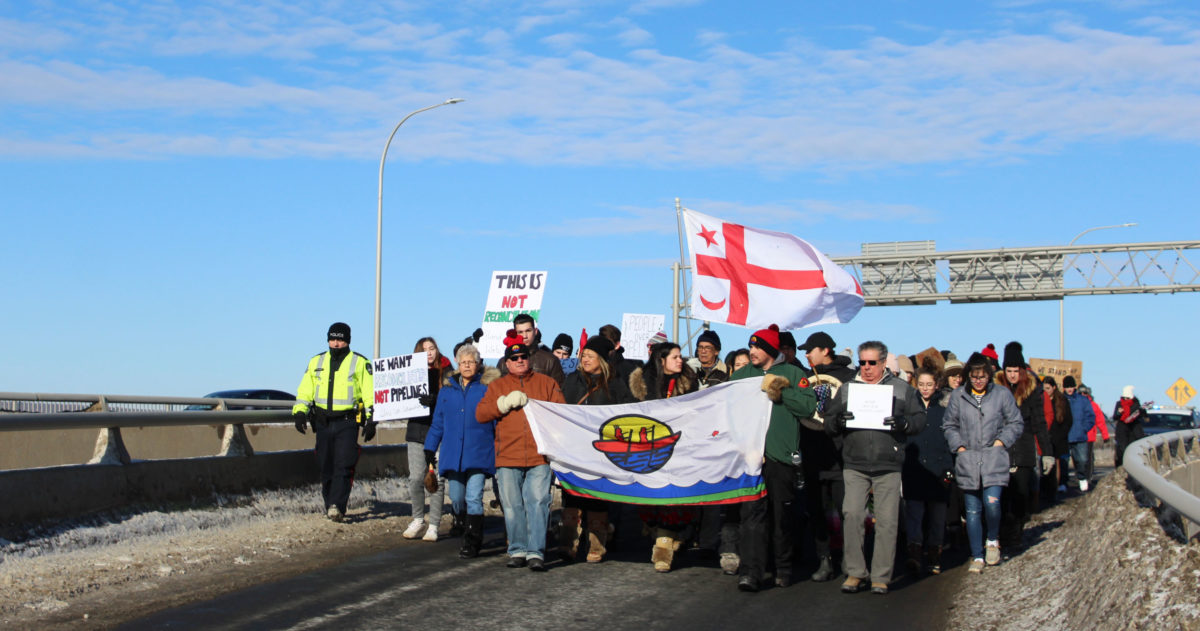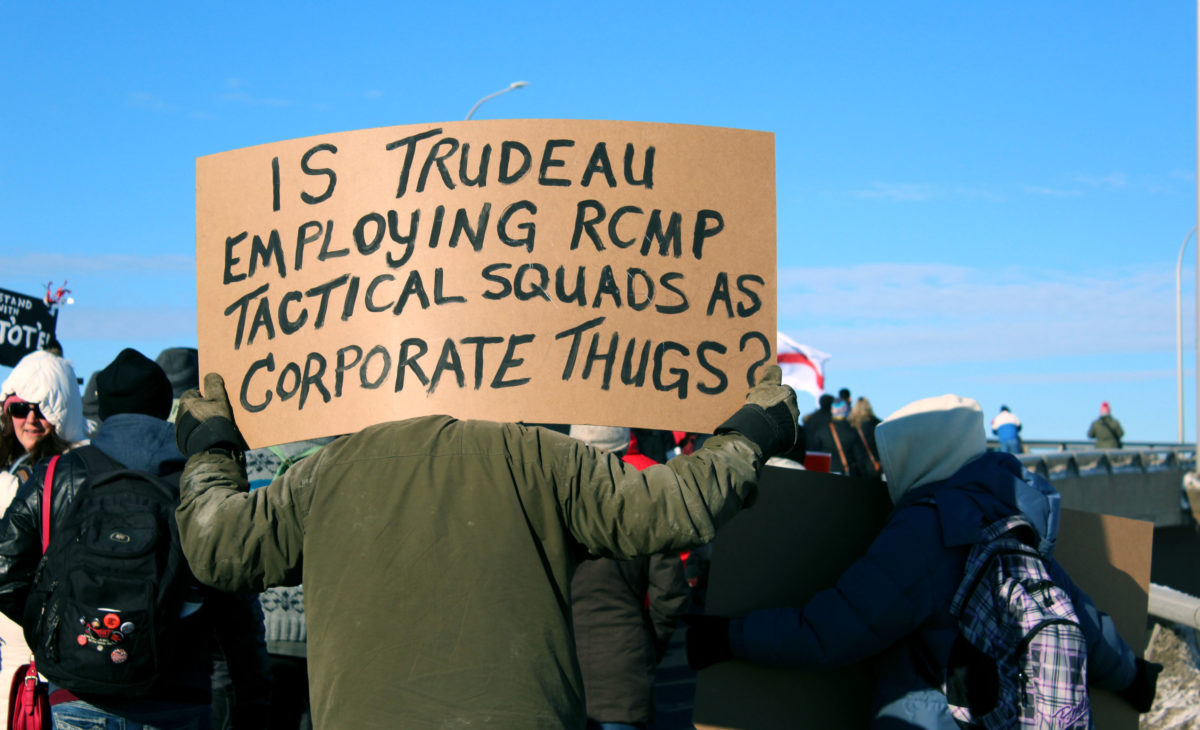
About 70 people walked side-by-side across the Westmorland Bridge, hoisting signs reading “RCMP off our Native land,” “We stand with Wet’suwet’en” and “This is not reconciliation,” on Jan. 15. The goal of the partial blockade was to slow traffic and raise awareness about the forceful removal of the Gidumt’en blockade on Wet’suwet’en First Nation in Northern British Columbia.
Fourth-year St. Thomas University student Kyanna Kingbird of Esgenoôpetitj First Nation was asked by an elder to organize the rally.
“The main reason [for the blockade] was a way of bringing awareness of what’s going on in the Wet’suwet’en Territory … because it’s turning into almost a norm for how you treat Indigenous people attempting to assert their sovereign rights over their own lands,” Kingbird said in an interview with The Aquinian.
“And it’s a shame it has to be like that, but also it’s important that everybody knows about it because it’s not just an Indigenous issue.”

Wet’suwet’en First Nation set up two camps, Unist’ot’en and Gidumt’en, along a forest service road to control access to their territory and prevent pipeline workers from getting through their checkpoints. Royal Canadian Mounted Police enforced a court injunction on Jan. 7 ordering people to stop preventing access to the road.
Fourteen people were arrested Jan. 8 at the Gidumt’en checkpoint on the forest road.
Jared Durelle, a Mi’kmaq-Acadian student in his second year at STU, attended the rally as a freelance journalist and supporter.
“There’s a bunch of political groups in this, there’s a bunch of industrial groups in this, there’s a bunch of people concerned about resources but at the basis of it, the solidarity movement wasn’t about protesting or trying to reacquire power,” Durelle said.
“It’s about respecting the Indigenous sovereignty and duty to protect the lands which is like, at its base, that’s a pretty cool thing to support.”
The proposed pipeline would transport natural gas from northeastern B.C. to the coast.
The company in charge of the pipeline project, TransCanada Corp., said it signed agreements within Wet’suwet’en Territory, but hereditary leaders said the agreements don’t pertain to traditional territories.
Spark ignited
Kingbird said the blockade in Fredericton was a success.
“I wasn’t sure what to expect,” she said.
“For everyone that did show support, I am eternally grateful for it.”
Kingbird hopes a spark was ignited in the people who attended.
“It’s good to see people who want to step up and start to learn the power of their own individual being and how when you come forward with something that you care about, you’ll see how many other people care about it as well.”
With files from Elizabeth Polk
